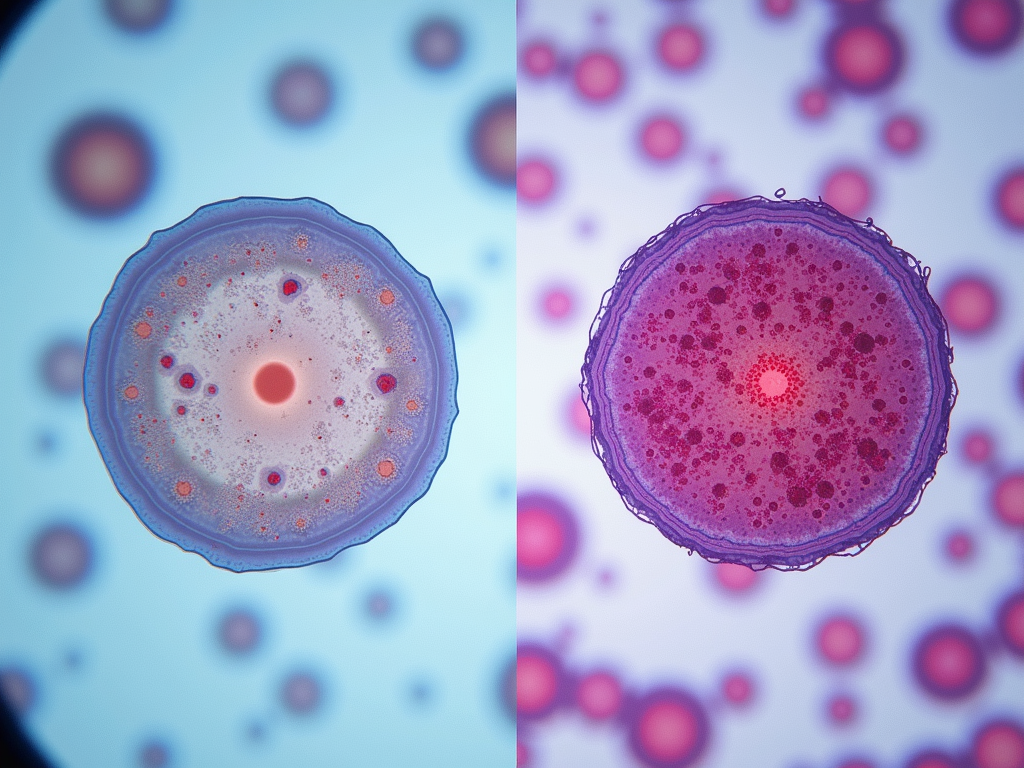Environmental Toxins: Protecting Your Reproductive Health
June 6, 2025, 7:46 a.m.
Environmental toxins are everywhere, from the air we breathe to the food we eat. These toxins can significantly impact male reproductive health, leading to issues like low sperm count (oligospermia) and hormonal imbalances. Understanding these risks and making informed lifestyle choices can help protect your fertility.
Let's dive into the world of environmental toxins and their effects on male reproductive health. These toxins include chemicals like pesticides, heavy metals, and endocrine disruptors found in plastics and personal care products. They can interfere with hormone production, damage sperm, and reduce fertility.

Lifestyle factors play a crucial role in male infertility. Smoking, excessive alcohol consumption, poor diet, and lack of exercise can all contribute to reproductive issues. For example, smoking has been linked to decreased sperm quality and motility.
| Lifestyle Factor | Impact on Fertility |
|---|---|
| Smoking | Decreases sperm quality and motility |
| Alcohol | Reduces testosterone levels |
| Diet | Poor nutrition can lead to hormonal imbalances |
| Exercise | Regular physical activity improves sperm quality |
Oligospermia, or low sperm count, is a common issue in male infertility. It can be caused by various factors, including environmental toxins and lifestyle choices. Hormonal imbalances, such as low testosterone levels, can also affect sperm production and quality.

Protecting your reproductive health starts with awareness and action. Here are some steps you can take: - Avoid exposure to environmental toxins by choosing organic foods, using natural personal care products, and reducing plastic use. - Adopt a healthy lifestyle: quit smoking, limit alcohol, eat a balanced diet, and exercise regularly. - Get regular check-ups to monitor your reproductive health.
- Choose organic foods to avoid pesticides.
- Use natural personal care products to reduce exposure to chemicals.
- Limit plastic use to avoid endocrine disruptors.
- Quit smoking to improve sperm quality.
- Limit alcohol to maintain healthy testosterone levels.
- Eat a balanced diet rich in antioxidants.
- Exercise regularly to boost fertility.
Personal insights: I've seen firsthand how lifestyle changes can make a difference. A friend of mine struggled with infertility due to his smoking habit and poor diet. After quitting smoking and adopting a healthier lifestyle, his sperm count improved significantly.
Environmental toxins are pervasive in our daily lives. Pesticides, for example, are widely used in agriculture and can contaminate our food and water. These chemicals can disrupt the endocrine system, leading to hormonal imbalances that affect sperm production and quality.

Heavy metals like lead and mercury are another concern. They can accumulate in the body over time, causing damage to the reproductive system. For instance, lead exposure has been linked to decreased sperm count and motility.
Endocrine disruptors, found in plastics and personal care products, mimic hormones and interfere with the body's natural hormone balance. This can lead to issues like oligospermia and reduced fertility.

Lifestyle factors are equally important. Smoking, for example, introduces harmful chemicals into the body that can damage sperm DNA and reduce fertility. Excessive alcohol consumption can lower testosterone levels, affecting sperm production.
Diet plays a crucial role as well. A diet high in processed foods and low in antioxidants can lead to oxidative stress, which damages sperm. On the other hand, a diet rich in fruits, vegetables, and whole grains can support reproductive health.
| Nutrient | Benefit for Fertility |
|---|---|
| Antioxidants | Protect sperm from oxidative damage |
| Zinc | Essential for sperm production |
| Folate | Supports healthy sperm development |
| Omega-3 fatty acids | Improve sperm motility |
Exercise is another key factor. Regular physical activity can improve sperm quality and boost testosterone levels. However, excessive exercise or the use of performance-enhancing drugs can have the opposite effect.
Oligospermia, or low sperm count, is often a result of these environmental and lifestyle factors. It can also be caused by genetic factors, infections, or medical conditions. Hormonal imbalances, such as low testosterone or high estrogen levels, can further complicate the issue.

Protecting your reproductive health requires a proactive approach. Start by minimizing exposure to environmental toxins. Choose organic foods, use natural personal care products, and avoid plastic containers for food and drinks.
Adopt a healthy lifestyle: quit smoking, limit alcohol, eat a balanced diet, and exercise regularly. Consider supplements like antioxidants and zinc to support reproductive health.
- Choose organic produce to avoid pesticides.
- Use glass or stainless steel containers instead of plastic.
- Opt for natural, chemical-free personal care products.
- Quit smoking to reduce toxin exposure.
- Limit alcohol to maintain hormonal balance.
- Eat a diet rich in antioxidants and essential nutrients.
- Exercise moderately to boost fertility.
Regular check-ups are crucial. Consult with a healthcare professional to monitor your reproductive health and address any issues early on. Semen analysis and hormone tests can provide valuable insights.
Personal insights: I once knew someone who was struggling with infertility. After making significant lifestyle changes, including quitting smoking and improving his diet, he saw a remarkable improvement in his sperm count. It was a testament to the power of lifestyle choices.
Another friend of mine was exposed to high levels of lead at work. After taking steps to reduce his exposure and undergoing treatment, his reproductive health improved. These experiences highlight the importance of awareness and action.
Environmental toxins and lifestyle choices can significantly impact male reproductive health. By understanding these risks and making informed decisions, you can protect your fertility. For more information, check out these recommended readings: